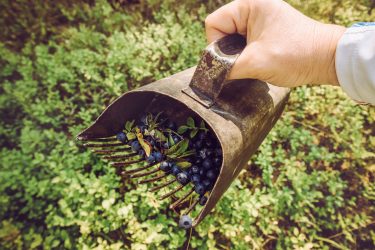Three huge problems with the Western world’s food system
- Like
- Digg
- Del
- Tumblr
- VKontakte
- Buffer
- Love This
- Odnoklassniki
- Meneame
- Blogger
- Amazon
- Yahoo Mail
- Gmail
- AOL
- Newsvine
- HackerNews
- Evernote
- MySpace
- Mail.ru
- Viadeo
- Line
- Comments
- Yummly
- SMS
- Viber
- Telegram
- Subscribe
- Skype
- Facebook Messenger
- Kakao
- LiveJournal
- Yammer
- Edgar
- Fintel
- Mix
- Instapaper
- Copy Link
Posted: 5 May 2020 | Chris Elliott | 2 comments
Professor Chris Elliott points out the herd of elephants in the room that have appeared since the coronavirus pandemic.


COVID-19 has exposed a range of issues with our food supply system, what we eat, and how little we understand all of this. In my second column (rant) for New Food, I want to flag up a few of these issues and offer my opinion; I certainly don’t expect all readers to agree with me…that would be very boring indeed! So here goes…
Diet and health
At the head of the elephant (in the room) herd is the fragility of the Western world’s health and well-being due to diet. For example, data from the UK indicates that around 75 percent of patients suffering from COVID-19 and admitted to HHS Intensive Care Units were either overweight or obese. Dr Aseem Malhotra, a cardiologist who I have immense respect for, referred to an article in Nature which stated that “patients with type 2 diabetes and metabolic syndrome might have to up 10 times greater risk of death when they contract COVID-19”.1 So when the final figures are collected, collated and analysed, the impact of an unhealthy diet will have cost our nation dearly.
Let’s not forget the obesity epidemic was a major factor in our health service being stretched to the limits before coronavirus hit. I will just throw in one more interesting fact here. We have been told how well South Korea has fared against the pandemic in a number of reports, did you know that this country has one of the lowest rates of obesity in the world?
It has to be screamingly obvious that massive interventions are needed by governments to tackle the tsunami of hyper processed junk food that feeds so many and is, in effect, killing them.
Treatment of workers
Another ugly elephant was recently exposed by the Guardian2 newspaper whereby many thousands of migrant workers were shown to be living in horrendous conditions on Spanish farms. These farms provide large amounts of fruit and vegetables for the UK market.
For how long can we keep turning a blind eye to the way in which the people providing our food are treated? We have a moral obligation to ensure we don’t purchase from these supply chains and those that do should be held to account. We live in the digital era, tracking and tracing where our food comes from has never been easier since the onset of globalisation.
Reliance on foreign workers
My third elephant is also around fresh produce and the fact that there are huge risks to the UK harvest due to lack of labour. Where is this labour you might ask? Well many of them


are migrant workers who cannot travel to the UK due to coronavirus. The ‘land army’ that George Eustice was telling us about didn’t show up in the numbers needed. Quelle surprise? Back breaking work for minimum wages. Hardly surprising that queues weren’t forming. And, of course, this problem won’t go away post-COVID as we will have all the fun of Brexit to look forward to.
So what are the solutions to all these elephants? We need leadership in our government and our food and farming industries, that is for certain.
Perhaps, we also need a revolution or two…? One, which will bring massive innovations in terms of science and technology to the agriculture industry. And two, a peoples’ revolution, where we all realise that cheap food comes as a price which we simply can’t afford to pay.
References
- https://www.nature.com/articles/s41574-020-0353-9
- https://www.theguardian.com/global-development/2020/may/01/no-food-water-masks-or-gloves-migrant-farm-workers-in-spain-at-crisis-point
Related topics
COVID-19, Food Safety, Health & Nutrition, Recruitment & workforce, Regulation & Legislation, Supply chain, Traceability, Trade & Economy










thanks Jim, glad you enjoyed the article. The points you make are all good and join the herd…..
Perhaps I’m a bit more sceptical than you but sometimes I feel sourcing by some companies is guided by the Nelson principle i.e. turning a blind eye. You know sometimes some feel its better not to ask too many difficult questions…..I think this is all wrong and apart from being morally and ethically incorrect will lead to serious business repercussions.
Chris, great article.The other elephant I’d like to try to squeeze into the room is around climate change and particularly deforestation. There are a number of products whose supply chains trace back to cynical deforestation. The primary offenders are Brazilian beef and soy as well as palm oil from wherever it comes.
With all of these issues (fraud, slave labour and deforestation) I genuinely believe that off-takers are not actively seeking out these product sources. They just are not asking rigorous enough questions when the raw material price seems too good to be true. I think this is a phenomenon with which you were pretty familiar during your horse-gate investigations.